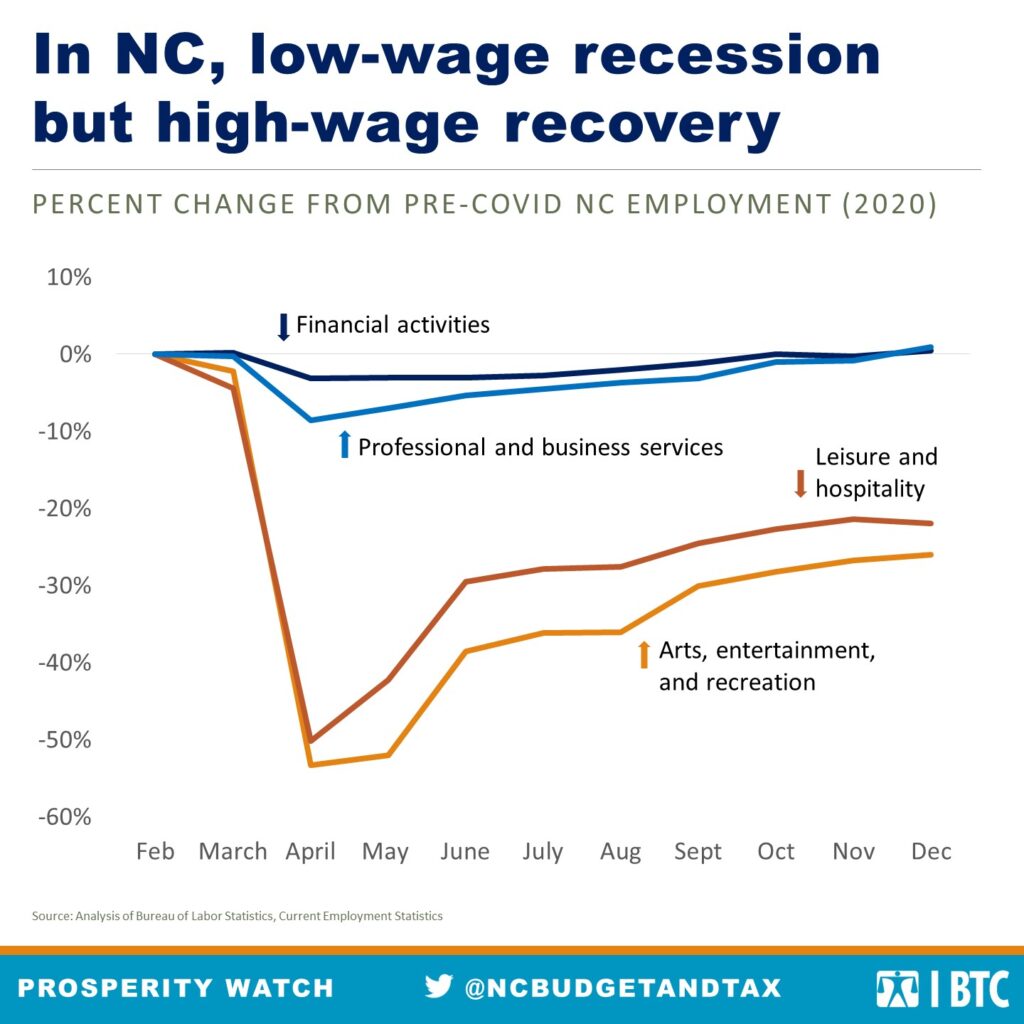Almost a year on from when COVID-19 arrived, hundreds of thousands of our state’s worst-paid workers still can’t find a job even as the recession is effectively over for some of the high-wage industries in North Carolina.

Anyone who’s been paying any attention knows COVID-19 is creating outsized suffering for low-wage workers, women, and people of color, but the magnitude of the economic disconnect is still often under-appreciated. In two short months from February to April of last year, nearly 270,000 leisure and hospitality jobs (roughly half of the positions in North Carolina) vanished. Most of the people who were put out of work had been getting paid meager wages and had little financial cushion to fall back on. A long history of occupational segregation and barriers to lucrative careers also meant women and people of color were particularly likely to have their livelihoods disappear. On the other end of the wage scale, North Carolinians working in finance, business services, technology, and other white collar positions saw their daily lives upended, but many were able to shift to working remotely and most kept pulling down good paychecks. Even at the worst of the recession, 9 out of every 10 professional and business services workers were still on the job, and only 3 percent of people in finance were out of work
As different as the immediate impacts were, the divide is in many ways even more dramatic today. The recession was effectively over for the best paid North Carolinians by the later part of 2020, but our worst-paid workers are still stuck in a devastating economic hole. By the end of last year, all of the jobs lost to COVID-19 in Professional and Business Services had been recovered while one-fifth of the pre-pandemic jobs (117,500) in Leisure and Hospitality are still missing.
 Justice Circle
Justice Circle